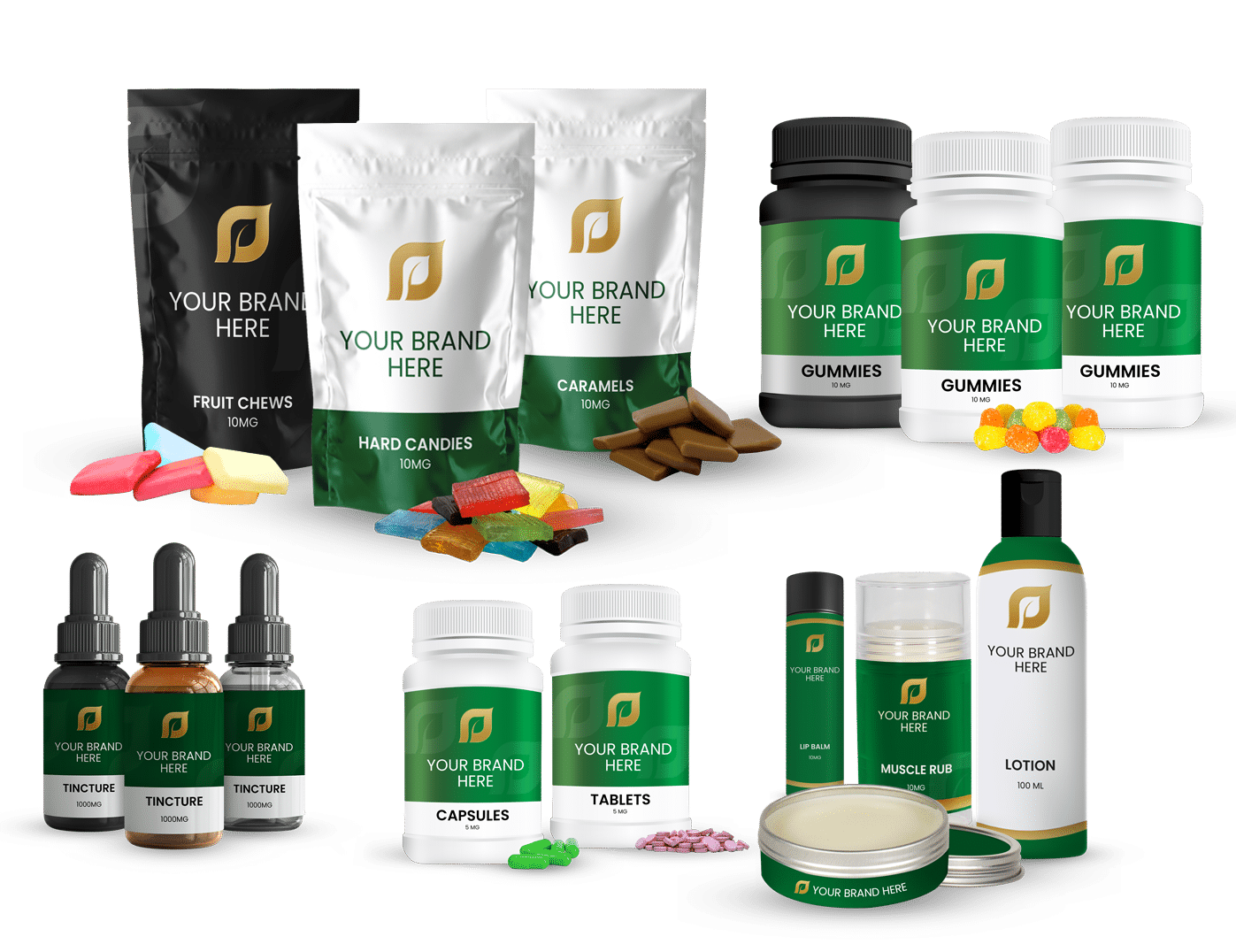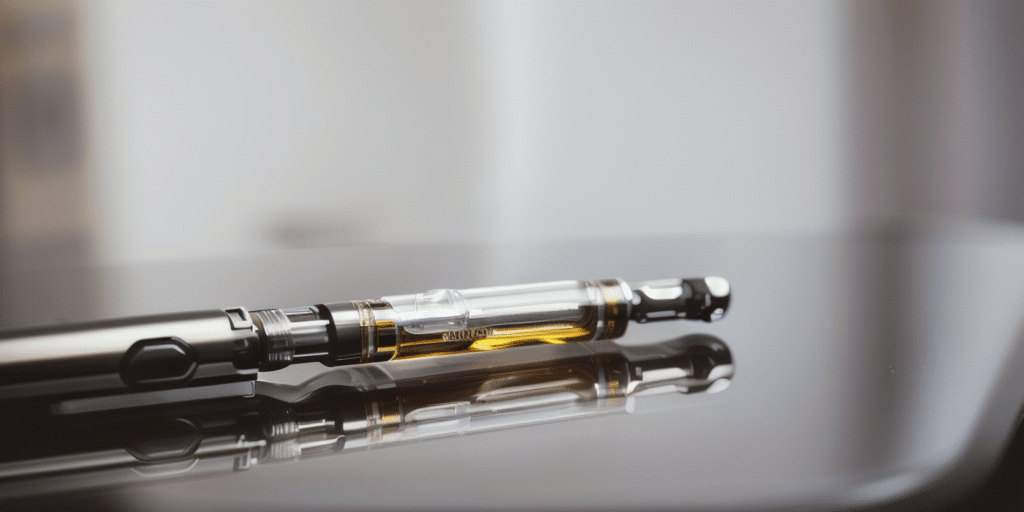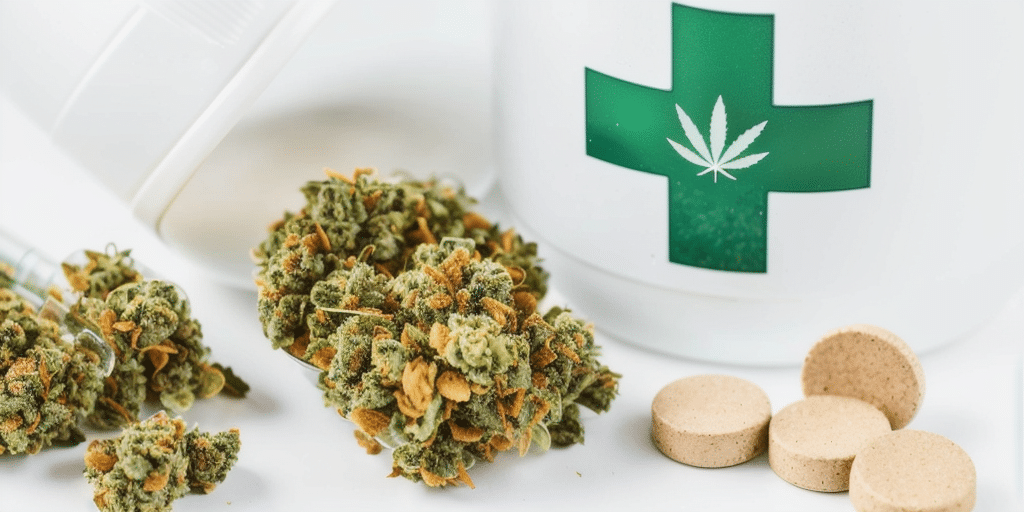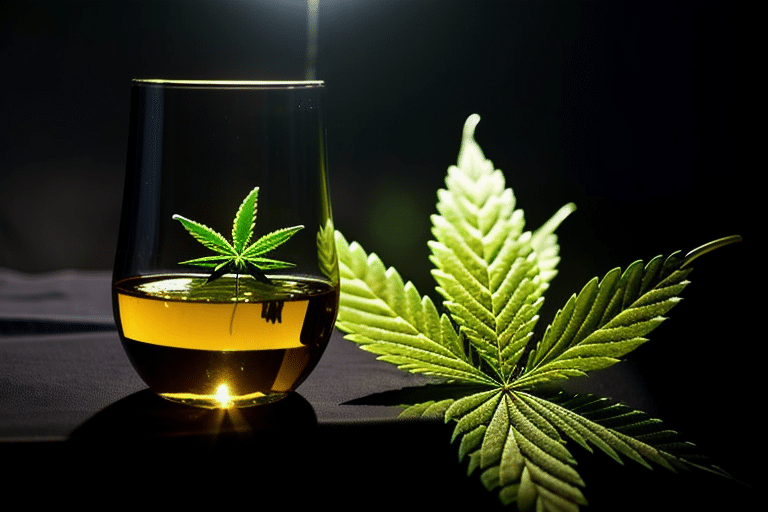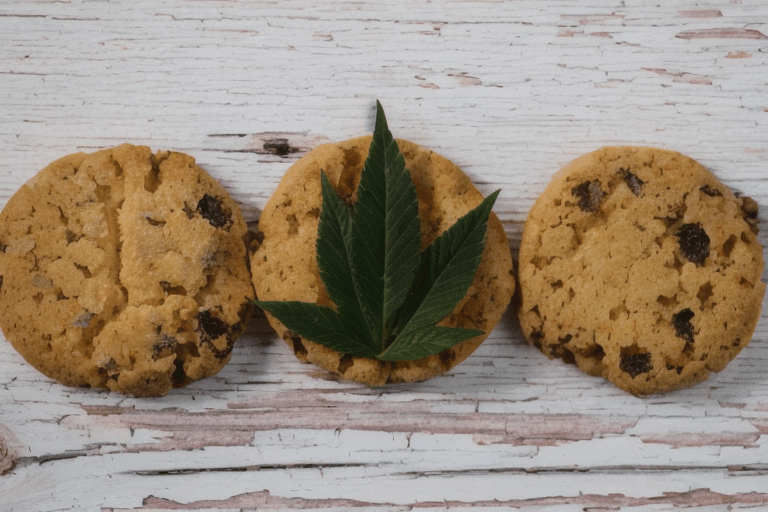Incorporating Delta-9-THC into workout routines can potentially benefit casual fitness enthusiasts and professional athletes by enhancing focus, providing pain relief, and speeding up muscle recovery; however, factors like proper dosage, product quality, individual response, and adherence to competitive sports regulations should be considered to ensure safe and effective usage.
Table of Contents
ToggleA New Approach to Fitness: Delta-9-THC Pre-Workout
The incorporation of cannabis-based products, specifically Delta-9-tetrahydrocannabinol (THC), has impacted the fitness landscape and workout routines for both casual enthusiasts and professional athletes by potentially enhancing exercise experiences and recovery through its interaction with the body’s endocannabinoid system.
Embracing Cannabis in the Realm of Fitness
In our rapidly evolving world, the fitness landscape has been transforming as well. Among these changes, one particularly intriguing development has emerged: the incorporation of cannabis-based products into workout regimens. Both casual fitness enthusiasts and professional athletes have begun exploring the potential advantages of cannabinoids like Delta-9-tetrahydrocannabinol (THC) to elevate their exercise experiences and recovery.
Decoding Delta-9-THC: A Quick Primer
To understand this newfound fascination with Delta-9-THC, let’s first demystify the compound itself. Present in both hemp and cannabis plants, it is subject to regulations under the 2018 Farm Bill, which stipulates that legal hemp-derived products must contain no more than 0.3% of Delta 9 THC by dry weight. Consequently, fitness products featuring this cannabinoid predominantly utilize hemp as their source.
One delightful form in which Delta-9-THC has gained traction is gummies. Each morsel typically contains around 10 mg of THC within its roughly 6 grams (6,000 mg) total weight. This minuscule proportion of THC serves to provide a gentle yet effective enhancement for workouts without triggering any undesirable side effects.
The reason behind this enthusiasm for Delta-9-THC among fitness aficionados lies in its interaction with our body’s endocannabinoid system – a complex network responsible for regulating various physiological processes such as pain management, mood balance, and immune function. By engaging with this system, Delta-9-THC may unlock some unexpected advantages for those seeking to optimize their exercise routines and recovery periods.
In forthcoming sections, we will delve further into the intricacies of the endocannabinoid system, investigate the potential pros and cons of using Delta-9-THC pre-workout, and offer guidance on determining your ideal dosage. Regardless of your fitness background, incorporating Delta-9-THC into your regimen could reveal the secret ingredient you’ve been yearning to discover!
The Dance of the Endocannabinoid System and Exercise
Delta-9-THC interacts with the endocannabinoid system by binding to cannabinoid receptors, promoting benefits such as sleep, pain relief, and stress management for exercise enthusiasts through its harmonious influence on physiological processes.
A Grand Introduction to the Endocannabinoid System
Imagine the endocannabinoid system (ECS) as a beautifully choreographed dance within our bodies. This intricate cell-signaling system expertly twirls and spins, ensuring that our physiological processes – such as mood, memory, appetite, and pain – stay in perfect harmony. With cannabinoid receptors as the dancers, endocannabinoids as their partners, and enzymes orchestrating every step, the ECS keeps our body balanced by guiding these vital functions.
Delta-9-THC: A Dazzling Guest on the Dance Floor
Now picture Delta-9-THC waltzing into this dance, elegantly interacting with the ECS. As the main psychoactive compound found in cannabis plants, Delta-9-THC gracefully partners with cannabinoid receptors. Delta-9 hemp-derived THC gummies are like an invitation to this ball, offering varying amounts of THC and CBD per gummy for those eager to experience its effects.
When consumed by exercise enthusiasts, these compounds join the ECS’s harmonious dance, promoting a range of beneficial effects. For instance, after savoring just half of a Delta-9-THC gummy, our author enjoyed a deep eight-hour sleep without a trace of grogginess upon awakening. Recent studies support this anecdote, revealing that individuals who sleep well drift off 30 minutes faster, while those with insomnia fall asleep 15 minutes quicker when accompanied by Delta-9.
Wondrous Effects: Pain Relief and Stress Management
Pain relief emerges as another enchanting benefit of incorporating Delta-9-THC into your fitness routine. Resembling a soothing waltz across the dance floor, one study showed that participants experienced significant reductions in pain intensity after receiving a daily dose of 7.5 mg Delta-9-THC.1 And as their pain subsided, their overall quality of life flourished.
Moreover, Delta-9-THC can help you master the art of stress management. Like a calming partner guiding you through each step, low doses of Delta-9-THC produce stress-relieving effects.
However, be cautious – higher doses may inadvertently amplify negative moods. Our author recommends a gentle dosage of 5mg or less but encourages consultation with a doctor for personalized guidance.
The Finale: Choosing High-Quality Delta-9-THC
As the curtain falls on this dance, it’s crucial to remember the importance of selecting high-quality Delta-9-THC products. By opting for reliable, reputable brands, you can fully embrace the benefits of incorporating Delta-9-THC into your workout routine while minimizing potential risks. So go ahead – take your place on the dance floor and let the endocannabinoid system guide you towards optimal well-being.
Unleashing the Power of Delta-9-THC in Your Workout Regimen

Imagine a world where you could elevate your workout experience, enhancing your focus, overcoming mental barriers, and speeding up muscle recovery. Delta-9-THC, the star component of cannabis, may just hold the answers.
Cultivating Mindful Workouts with Heightened Focus
The ability to be present during exercise is crucial for optimal performance. Delta-9-THC has the potential to sharpen one’s focus, paving the way for mindful workouts that maximize results. By being fully engaged in every movement, you can transform your fitness journey into a more effective and gratifying endeavor.
Rethinking Pain Relief: Pushing Through Workouts with Ease
Contrary to the popular saying “no pain, no gain,” Delta-9-THC offers an alternative by providing pain relief during strenuous workouts. This cannabinoid can alleviate discomfort, allowing you to tackle your routine with greater ease and avoid potential injuries from overexertion.
Breaking Free from Mental Blocks with Cannabis Creativity
We’ve all faced those moments when motivation seems elusive. Delta-9-THC might just be the answer to reignite our drive. With its association with creativity and divergent thinking, cannabis can help dismantle negative thought patterns and spark newfound enthusiasm for fitness.
Accelerating Muscle Recovery: Bouncing Back Faster Than Ever
Intense workouts demand time for our muscles to recover and rebuild. One of Delta-9-THC’s lesser-known benefits is its potential to expedite this process. Thanks to its anti-inflammatory properties, cannabis may reduce post-workout muscle inflammation, leading to faster recovery times and diminished soreness – ultimately getting you back in the game sooner.2
In essence, integrating Delta-9-THC into your pre-workout routine could revolutionize your fitness experience. From honing focus during exercise to accelerating muscle recovery post-workout, this powerful cannabinoid offers a myriad of potential benefits. However, careful consideration of the pros and cons is crucial before delving into its use – always remember that personalization is the cornerstone of success.
Do you need custom private label Delta 9 products produced for your cannabis business?
SEE WHAT WE CAN DO
Do you need custom private label Delta-9 products produced for your CBD business?
SEE WHAT WE CAN DO
The Great Cannabis Workout Debate
The potential benefits of incorporating cannabis into pre-workout routines for athletes include pain relief and enhanced focus, while drawbacks involve unpredictable effects on exercise, decreased growth hormone production that could hinder muscle building, and possible disqualification from competitions or suspension from sports due to its banned status by the World Anti-Doping Agency.
Weighing the risks and rewards of marijuana in the gym
In the world of fitness, many athletes have become intrigued by the idea of incorporating cannabis into their pre-workout routines. Some swear by its ability to alleviate pain and enhance focus, while others warn against potential detriments to performance. Today, let’s dive into the science behind these claims, as well as the possible consequences for those who choose to mix weed and exercise.
A Dubious Duo: Marijuana and Muscle Building
Although anecdotal evidence may suggest that cannabis provides relief from workout-induced pain, it’s important to note that scientific research has yet to support any concrete performance-enhancing benefits.
In fact, combining marijuana with your pre-workout routine could potentially hamper your progress. Weed contains over 60 cannabinoids and Delta-9-tetrahydrocannabinol (THC), a compound known to exert various hormonal effects, including a decrease in growth hormone production that could blunt the muscle-building effects of exercise.
The Wild Card: Unpredictable Effects on Exercise
The endocannabinoid system – consisting of CB1 receptors (found in the brain and central nervous system) and CB2 receptors (located in peripheral organs and immune system cells) – plays a significant role in determining how our bodies interact with weed.
This complex network can produce an array of effects, such as relaxation, altered time perception, anxiety, elevated heart rate, heightened senses, and pain relief. However, due to individual differences and variations between strains of marijuana, it can be difficult for users to predict how cannabis will impact their workout.
A Red Flag for Competitive Athletes: Banned Substances
For those involved in competitive sports or considering a future in athletics, it’s crucial to be aware that marijuana is prohibited by the World Anti-Doping Agency (WADA).3 Using cannabis products could result in disqualification from competitions or even suspension from your chosen sport. This ban extends beyond Delta-9-THC, encompassing other cannabinoids found in the plant as well.
While some may tout the advantages of using cannabis as part of a pre-workout routine, it’s essential to carefully consider the potential risks associated with this practice and the unpredictable nature of its effects on each individual. Competitive athletes should be especially cautious and avoid cannabis products entirely to prevent potential penalties. As always, consult with a medical professional before incorporating any new substance into your fitness routine, keeping in mind that each person’s experience with cannabis can differ significantly.
The Art of Balance: Unraveling the Secrets to Integrating Delta-9-THC into Your Fitness Regime
Incorporating cannabis and CBD into your fitness routine can potentially improve exercise performance and recovery by enhancing focus, reducing anxiety, and aiding muscle repair, but it is crucial to consult a physician for proper dosage and select high-quality Delta-9-THC products to ensure safety and efficacy.
The Delicate Dance of Dosage: Why It Matters in Delta-9-THC Use
Let’s begin by exploring a fascinating revelation from a 2019 CU Boulder survey: eight out of ten cannabis users chose to consume cannabis either shortly before or after engaging in physical activity. Intriguingly, this group surpassed their non-cannabis-using counterparts in terms of exercise frequency and duration. Dr. Kenneth Weinberg, a leading authority at Cannabis Doctors of New York, posits that the pre-workout consumption of CBD or cannabis can sharpen focus for many individuals.
The anti-inflammatory powers of both THC and CBD extend their reach beyond merely alleviating chronic pain; they also play a vital role in post-workout recovery. In a groundbreaking decision, Olympic athletes were granted permission to utilize CBD in their training during 2021.4
Kathryn Cannon, an esteemed Plant Medicine Specialist, expounds on the efficacy of cannabis in dissolving mental barriers that impede optimal performance. A growing body of research corroborates the anxiety-relieving attributes of both cannabis and CBD. Dr. Weinberg believes this calming effect paves the way for muscle repair after strenuous workouts.
However, striking the perfect balance with dosage is imperative; excessive cannabis consumption can dangerously spike your heart rate and plummet your blood pressure. It is vital to consult with a physician prior to incorporating cannabis into your fitness routine and to initiate usage with the smallest viable dose before cautiously increasing it.
A Matter of Trust: Selecting Superior Delta-9-THC Products
While some investigations imply a bronchodilating effect (enhanced breathing capacity during exercise) caused by THC, it’s important to recognize that only Delta-9-THC – and to a lesser degree, Delta-8 THC – appear responsible for this phenomenon; CBD does not exhibit bronchodilating properties. Conversely, cannabis may impair reaction times, potentially heightening the risk of accidents during workouts.
Thus, placing your confidence in reputable sources and opting for high-quality Delta-9-THC products is critical for ensuring safety and efficacy. Cannon advocates experimenting with various consumption methods tailored to your specific needs, such as incorporating a few drops of tincture or employing topicals post-workout to mitigate inflammation and discomfort.
A Tale of Two Cannabinoids: Delta-8-THC and Delta-9-THC for Pre-Workout Use
The main differences between Delta-8 and Delta-9 THC are their psychoactive potency, with Delta-8 being milder, and their unique effects on muscle tension, inflammation, focus, and pain relief during exercise, which must be considered when choosing the optimal cannabinoid for pre-workout usage.
The Great Molecular Divide: Unraveling the Intricacies of Delta-8 and Delta-9 THC
In our quest to harness the power of cannabis for pre-workout enhancement, we must first acquaint ourselves with the starring cannabinoids: Delta-8 and Delta-9 THC. These molecular siblings, born from the same cannabis parent, possess distinct structural features that beget unique bodily impacts. Deciphering these contrasts is paramount as we weigh the merits of each cannabinoid for our pre-workout endeavors.
A Balancing Act: Weighing the Pros and Cons of Each Cannabinoid in a Pre-Workout Context
The potential benefits of using Delta-9-THC and Delta-8-THC as pre-workout supplements include alleviating muscle tension, reducing inflammation, enhancing focus, and promoting muscle recovery, while drawbacks encompass possible adverse interactions with other supplements, unpredictable effects during exercise, prohibition in competitive sports, and dosage concerns; Delta-8-THC presents milder psychoactive properties compared to Delta-9-THC, possibly making it more appealing for those seeking a less potent high.
The Renowned Psychoactive Protagonist: Delta-9-THC
Delta-9-THC, the infamous psychoactive constituent in marijuana, boasts an array of potential pre-workout boons. It may preempt post-exercise soreness by alleviating muscle tension before it materializes. Furthermore, it can temper inflammation, mitigating lactic acid accumulation and mending damaged proteins.
Ingesting Delta-9 prior to working out could invigorate you, possibly amplifying your gym performance. It may also facilitate sleep – an oft-overlooked pillar of recovery and overall fitness. The endocannabinoid system, an exercise accomplice, is influenced by Delta-9-THC to potentially bestow benefits such as sharpened focus, pain relief during exertion, surmounting mental hurdles, and augmented muscle recuperation.
Nonetheless, caution is advised when incorporating cannabis into your pre-workout routine. Potential pitfalls include adverse interactions between marijuana and pre-workout supplements, unpredictable effects during physical activity, prohibition in competitive sports, and dosage considerations when employing Delta-9-THC for pre-workout purposes.
The Understated Psychoactive Sibling: Delta-8-THC
Delta-8-THC, a lesser-known cannabinoid often overshadowed by its more famous counterpart, has recently garnered attention due to its subtler psychoactive properties compared to Delta-9-THC. This mild-mannered demeanor may render it more appealing to those seeking to integrate cannabis into their pre-workout rituals without the potent high induced by Delta-9.
While empirical evidence on Delta-8-THC remains scarce, its potential advantages and drawbacks in a pre-workout milieu could mirror those of Delta-9-THC. However, further inquiry is warranted to fully comprehend the repercussions of utilizing Delta-8 in this context.
To sum up, when juxtaposing Delta-8 and Delta-9 THC for pre-workout use, it is imperative to account for their inherent disparities as well as their prospective assets and liabilities. By grasping the singular effects of each compound, you can make an enlightened decision regarding the optimal cannabinoid for your fitness aspirations.
A Thoughtful Rethink: Mixing Pre-Workout with Delta-9-THC?
Incorporating Delta-9-THC into pre-workout rituals can potentially offer pain relief, improved focus, and faster muscle recovery, but may also cause negative effects such as sluggishness, anxiety, or hindered coordination; creating a personalized cannabis-fueled fitness plan involves starting with a low dose from a reputable source and adjusting according to individual responses while prioritizing safety and well-being.
Balancing the Scales: Pros and Cons
In the fascinating realm of fitness, a new question arises: should we incorporate Delta-9-THC into our pre-workout rituals? As with any decision that affects our well-being, it’s crucial to weigh the possible advantages and drawbacks.
For some, Delta-9-THC – a cannabinoid found in cannabis – could be the key to unlocking pain relief, sharpened focus, and expedited muscle recovery during workouts. However, it’s essential to recognize that this substance is not without potential pitfalls.
Overindulgence in Delta-9-THC might result in temporary negative effects such as sluggishness, disorientation, anxiety, dry mouth and eyes, elevated heart rate, or hindered coordination. The duration of these symptoms varies depending on how it’s consumed – typically a few hours for inhalation or several hours for edibles.
It’s also important to note that individuals predisposed to psychotic diseases should exercise caution when using Delta-9-THC due to potential exacerbation of their conditions.5
Furthermore, the FDA has yet to evaluate or approve any Delta-8-THC products for safe usage. Some Delta-8 offerings may contain harmful chemicals or contaminants inadvertently introduced during chemical synthesis. Unsubstantiated claims of health benefits from manufacturers only serve to put public health at greater risk.
Crafting Your Personal Cannabis-Fueled Fitness Plan
Should you choose to venture into the realm of cannabis-infused pre-workouts, remember that personalization is paramount. Begin by selecting a reputable source for your Delta-9-THC products to ensure quality and avoid exposure to potentially hazardous contaminants.
Embark on this journey with a low dose and progressively increase as needed until you strike the perfect equilibrium between performance enhancement and undesirable side effects. Bear in mind that individual responses to cannabinoids vary; what suits one person may not be ideal for another.
Above all, pay close attention to your body’s signals while exercising under the influence of cannabis. If you encounter any adverse side effects or sense a decline in your performance, don’t hesitate to reassess your approach and adjust accordingly.
Ultimately, merging pre-workout with Delta-9-THC has the potential to be a valuable addition to your fitness routine if done judiciously and with due consideration of possible risks. As in all pursuits of peak performance, it’s vital to prioritize safety and well-being above all else.
References
- https://www.ncbi.nlm.nih.gov/pmc/articles/PMC2925209/
- https://www.ncbi.nlm.nih.gov/pmc/articles/PMC8369499/
- https://www.wada-ama.org/en/news/wada-executive-committee-approves-2023-prohibited-list
- https://www.9news.com/article/sports/olympics/olympic-athletes-can-now-use-cbd-products-in-and-out-of-competition/73-46f9cb0b-7c44-4613-a3dc-2f3c7676331c
- https://pubmed.ncbi.nlm.nih.gov/15780846/

